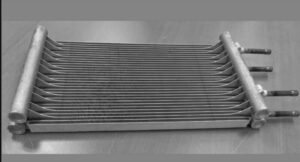The IoT platform is the center-bed or is at the heart of IoT solution and since the arrival of IoT as a concept many companies have established themselves as IoT platform providers. As IoT increases its footprint more and more companies are investing into providing IoT platforms. With so many platform vendors vying for customers it becomes that much more difficult for an enterprise to choose a platform.
There are quite a few IoT Platform-as-a-servicevendorsout there ranging from big companies to start-ups.And since the list keeps increasing here are a few criteria to help choose the most relevant and suitable platform for your IoT solutions.
Flexible and Scalable Platform
‘’Scalable platforms take care of long-term requirements’’
Scalability of the platform matters a lot. Currently, a company could be smaller in terms of size, operations, and connected devices but then it can always grow and a scalable platform is essential to suit these needs. A company having 50 connected devices can move up to having 500 and then to 5000, increasing number of devices means increase in complexity of operations and management of these devices. Under such circumstances a non-scalable and non-flexible platform would not only lead toa loss of investments but also jeopardize the company operations. Scalable and flexible platforms benefit a company in the long-run even as it expands in terms of operations and device numbers.
Supports emerging Protocols
‘’Ability to handle custom and emerging protocols is a must’’
HTTP and MQTT are the most commonly supported protocols by IoT platforms but newer and more sophisticated protocols are emerging and this calls for a platform that is flexible enough to support these emerging protocols. The platform should be able to support newer protocols to accommodate an increasing number of devices even as the IoT system evolves. Some of the new and emerging protocols that an IoT platform should support are CoAP and AMQP.
Integrable solution
‘’IoT platform should be Integrable with existing IT systems’’
The IoT platform has to fit in with your existing IT systems and infrastructure because if it cannot,then that could spell trouble for your company. Most companies have their existing IT systems hosted on-premise and hence the chosen IoT platform should be able to integrate with on-premise IT systems. Hybrid cloud based IoT solutions are best under such scenarios as they offer best of both worlds.
Interoperable IoT platform
‘’Ability to coherently operate with others systems is highly beneficial’’
Open source technology is being embraced by enterprises more than ever and this signals a need for IoT platforms to integrate with open source ecosystems. The platform must also be interoperable with third party vendors and other tools in the system. While the IoT platform is hosted on cloud there is a huge amount of data that is generated. This data needs to be used or consumed by multiple applications based outside the cloud (present on other systems) and only an interoperable IoT system can help achieve such a task.
IoT platform performance
‘Testing the system performance before opting for it makes sense’’
As more and more devices get connected to the IoT system the complexity of these systems increases, subsequently, so does the need for a better performance. The IoT platform responds to an event through rule based triggers. It takes some time to detect, handle, and analyze each event. More devices could lead to more events and the platformshould be able to handle and analyze these events as quickly as possible. It is essential to test and verify the performance of IoT platform and also check its latency with third party integration.
Platform Security is a must
‘’Without IoT security the entire effort is a waste’’
While IoT as a concept occupies headlines and makes news all over, one area where it is lacking in a substantial measure, is the area of security. The Mirai botnet has created more havoc than any other attack in the recent past. It was a well-planned and executed attack that was simple yet sophisticated and it brought down systems of many companies. Without a doubt your IoT platform should offer tight security and have multi-layered defence systems in place to both detect and withstand any or all threats and attacks. Techniques like device authentication, data encryption, and access protocols are a must. The gateways to the cloud platform should also be secured through encryption.
Unfortunately, enterprises sometimes choose a platform based on just its popularity or a great sales pitch by the representatives. This happens because some of the companies undergoing a digital transformation neither have the experience with or the expertise on IoT systems and they end up falling for some excellent promotional pitches by IoT platform vendors. Some of these vendors even showcase primitive proof of concepts and impress their customers. The right way is when enterpriseslook through all the technical criteria, evaluate, and then opt for an IoT platformthat suits their respective requirements.










